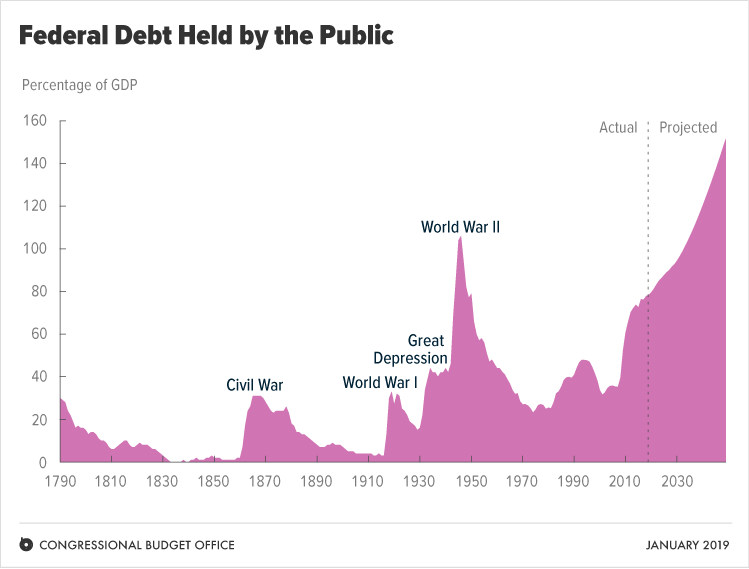Business
U.S. national debt tops $23 trillion for the 1st time

The public debt held by the United States has surpassed $23 trillion for the first time, an increase of nearly 100 percent in less than a decade and up more than one trillion this year alone, according to the U.S. Treasury Department.
The total public debt was $23,008,409,564,494.99 on Friday, of which $16.98 trillion is debt held by the public and the remaining $6 trillion are intergovernmental holdings. This is up more than a trillion when compared to February 12, when the national debt reached $22 trillion for the first time.
The national debt nearly doubled during the presidency of Barack Obama, with a record deficit of $1.4 trillion in 2009, but the debt has continued to rise at an accelerating rate under President Donald Trump. The Republican overhaul of the U.S. tax code in December 2017 is forecast to raise the deficit by $1.8 trillion through 2027.
This year’s deficit is expected to be $984 billion, the largest budget deficit in seven years, according to the Treasury Department. The federal budget deficit is expected to exceed $1 trillion each year beginning in 2022, according to a recent report from the non-partisan Congressional Budget Office (CBO).
History of the U.S. national debt
- 1783: $43 million (the first public debt)
- 1800: $82.9 million
- 1835: $0
The entire public debt was paid off under President Andrew Jackson. - 1845: $15.9 million
- 1860: $64.8 million (before the Civil War)
- 1865: $2.6 billion (after the Civil War)
- 1893: $1.5 billion
- 1914: $2.9 billion (before World War I)
- 1919: $27.3 billion (after World War I)
- 1930: $16.1 billion
- 1939: $40.4 billion (before World War II)
- 1946: $269.4 billion (after World War II)
- 1963: $305.8 billion
- 1975: $533.1 billion
- 1982: $1 trillion
- 1996: $5 trillion
- 2008: $10 trillion
- 2017: $20 trillion
The debt held by the public is expected to reach $27.3 trillion by the end of 2027, according to CBO. This does not include debt issued to government accounts, such as Social Security trust funds, because they don’t affect the economy directly and have no effect on the budget. Taken together, it would push the total debt well above $30 trillion by the end of 2027.


-

 US News7 days ago
US News7 days agoMagnitude 5.7 earthquake strikes between Dominican Republic and Puerto Rico
-

 Health1 week ago
Health1 week agoCambodia reports 6th H5N1 bird flu case this year
-

 Legal1 day ago
Legal1 day agoFirefighters ambushed while responding to Idaho wildfire, at least 2 killed
-

 World7 days ago
World7 days agoMagnitude 6.3 earthquake strikes offshore the Philippines
-

 US News4 days ago
US News4 days agoSmall meteorite fragment may have struck Georgia home
-

 Legal4 days ago
Legal4 days agoArmed woman blocks traffic on freeway in Houston, Texas
-

 Legal7 days ago
Legal7 days agoNo threat found after vehicle investigated near White House
-

 Legal3 days ago
Legal3 days agoWashington Post journalist Thomas LeGro arrested for child porn possession



